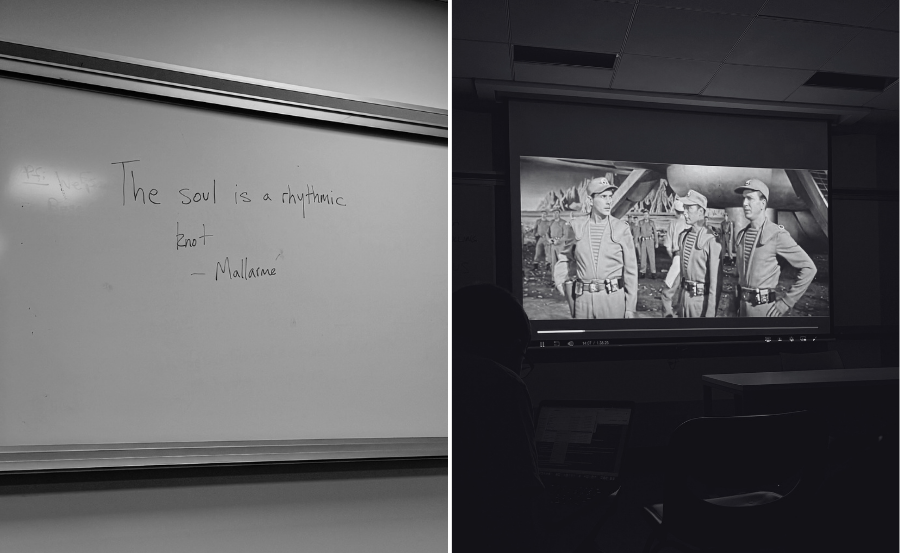It’s evident that Baruch College is known as a school for business and finance, yet beneath that reputation lies a thriving world of creativity and human expression. Humanities are far more than “electives;” they are the backbone that shapes not only successful students, but thoughtful human beings.
Even the most devoted STEM majors can benefit from exploring Lou Reed’s creative process in shaping The Velvet Underground, grappling with the profound ideas of Fyodor Dostoevsky in 19th-century Russia, or immersing themselves in Mary Shelley’s “Frankenstein” and the timeless questions it raises about humanity. It’s pivotal to shine a light on what truly rounds out a Baruch education: the lessons that go beyond numbers.
A theatre class involves so much more than students memorizing lines or playing improv games; they step into the minds and hearts of others, navigating emotions, conflicts and decisions no textbook could teach. Sarah Saddler, an assistant professor of theater in Baruch’s Department of Fine and Performing Arts, said “here, ‘play’ is not frivolous but a productive mode of inquiry.”
She added, “the classroom becomes a laboratory where students rehearse the capacities — confidence, flexibility, empathy, presence and creativity — that are sought after by employers across industries. These experiences remind us that education is never only about technical expertise but about developing the human capacities that will serve students wherever their lives take them.”
With professor Saddler, students don’t just learn theatre; they discover themselves in it.
Many assume a film class means watching a movie and answering a few surface-level questions, but that couldn’t be further from the truth. Even if just for a split second, cinema invites us to believe in a world imagined by dreamers.
The three main components of this feeling — of inspiration, creativity and curiosity — are what we owe students. Baruch professor Peter Hitchcock of English and Film Studies specializes in that pedagogy. He shared his thoughts on this common misconception, and the value film classes hold for Baruch students.
“I am a firm believer in the Humanities as a vital arena for discussions of how we define and relate ourselves to each other,” he told The Ticker. “Different forms of art deepen such concern by suggesting that, among many great attributes, imagining worlds is profoundly active in how we live in this one, together.”
If there’s one course every student should take at Baruch, it’s the Special Topics Liberal Capstone: Literature and Popular Music. Under the guidance of adjunct lecturer Daniel Jacobson, the selections he curated made the class what it was: unparalleled. Exploring how various artists like Elvis Presley, Patti Smith and Iggy and the Stooges reshaped music is invaluable.
Hearing an old song on the radio is one thing, but understanding how it was made can be an eye-opening experience. Students traced the birth of hip-hop and rap, while also engaging with decadent literature from writers like Marcel Proust to Virginia Woolf.
Perhaps the course’s most enduring lesson is captured in the simple yet powerful words of Friedrich Nietzsche: “Art saves him, and through art, life itself is saved.”
The moment one gives in and feels something for a story and its characters, even knowing they’re fictional, is when films, literature, music and theatre transcend entertainment.
Art is by humans, for humans and about being human. It is proof that everyone is awake amid chaos or, if they’re asleep, that they are at least dreaming of something extraordinary. That’s the part worth holding onto.







